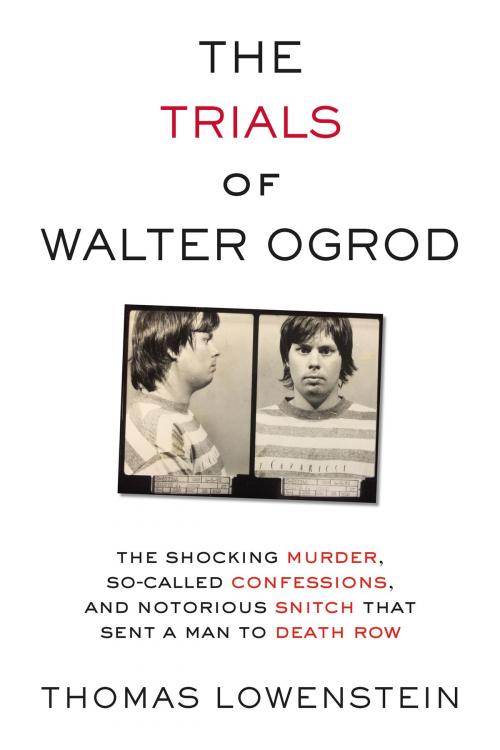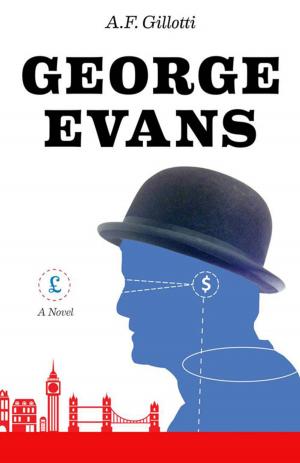Trials of Walter Ogrod
The Shocking Murder, So-Called Confessions, and Notorious Snitch That Sent a Man to Death Row
Nonfiction, Social & Cultural Studies, Social Science, Crimes & Criminals, Murder, True Crime| Author: | Thomas Lowenstein | ISBN: | 9781613738047 |
| Publisher: | Chicago Review Press | Publication: | April 1, 2017 |
| Imprint: | Chicago Review Press | Language: | English |
| Author: | Thomas Lowenstein |
| ISBN: | 9781613738047 |
| Publisher: | Chicago Review Press |
| Publication: | April 1, 2017 |
| Imprint: | Chicago Review Press |
| Language: | English |
The horrific 1988 murder of four-year-old Barbara Jean Horn shocked the citizens of Philadelphia. Plucked from her own front yard, Barbara Jean was found dead less than two and a half hours later in a cardboard TV box dragged to a nearby street curb. After months of investigation with no strong leads, the case went cold. Four years later it was reopened, and Walter Ogrod, a young man with autism spectrum disorder who had lived across the street from the family at the time of the murder, was brought in as a suspect.
Ogrod bears no resemblance to the composite police sketch based on eyewitness accounts of the man carrying the box, and there is no physical evidence linking him to the crime. His conviction was based solely on a confession he signed after thirty-six hours without sleep. "They said I could go home if I signed it," Ogrod told his brother from the jailhouse. The case was so weak that the jury voted unanimously to acquit him, but at the last second—in a dramatic courtroom declaration—one juror changed his mind. As he waited for a retrial, Ogrod's fate was sealed when a notorious jailhouse snitch was planted in his cell block and supplied the prosecution with a second supposed confession. As a result, Walter Ogrod sits on death row for the murder today.
Informed by police records, court transcripts, interviews, letters, journals, and more, award-winning journalist Thomas Lowenstein leads readers through the facts of the infamous Horn murder case in compelling, compassionate, and riveting fashion. He reveals explosive new evidence that points to a condemned man's innocence and exposes a larger underlying pattern of prosecutorial misconduct in Philadelphia.
The horrific 1988 murder of four-year-old Barbara Jean Horn shocked the citizens of Philadelphia. Plucked from her own front yard, Barbara Jean was found dead less than two and a half hours later in a cardboard TV box dragged to a nearby street curb. After months of investigation with no strong leads, the case went cold. Four years later it was reopened, and Walter Ogrod, a young man with autism spectrum disorder who had lived across the street from the family at the time of the murder, was brought in as a suspect.
Ogrod bears no resemblance to the composite police sketch based on eyewitness accounts of the man carrying the box, and there is no physical evidence linking him to the crime. His conviction was based solely on a confession he signed after thirty-six hours without sleep. "They said I could go home if I signed it," Ogrod told his brother from the jailhouse. The case was so weak that the jury voted unanimously to acquit him, but at the last second—in a dramatic courtroom declaration—one juror changed his mind. As he waited for a retrial, Ogrod's fate was sealed when a notorious jailhouse snitch was planted in his cell block and supplied the prosecution with a second supposed confession. As a result, Walter Ogrod sits on death row for the murder today.
Informed by police records, court transcripts, interviews, letters, journals, and more, award-winning journalist Thomas Lowenstein leads readers through the facts of the infamous Horn murder case in compelling, compassionate, and riveting fashion. He reveals explosive new evidence that points to a condemned man's innocence and exposes a larger underlying pattern of prosecutorial misconduct in Philadelphia.















